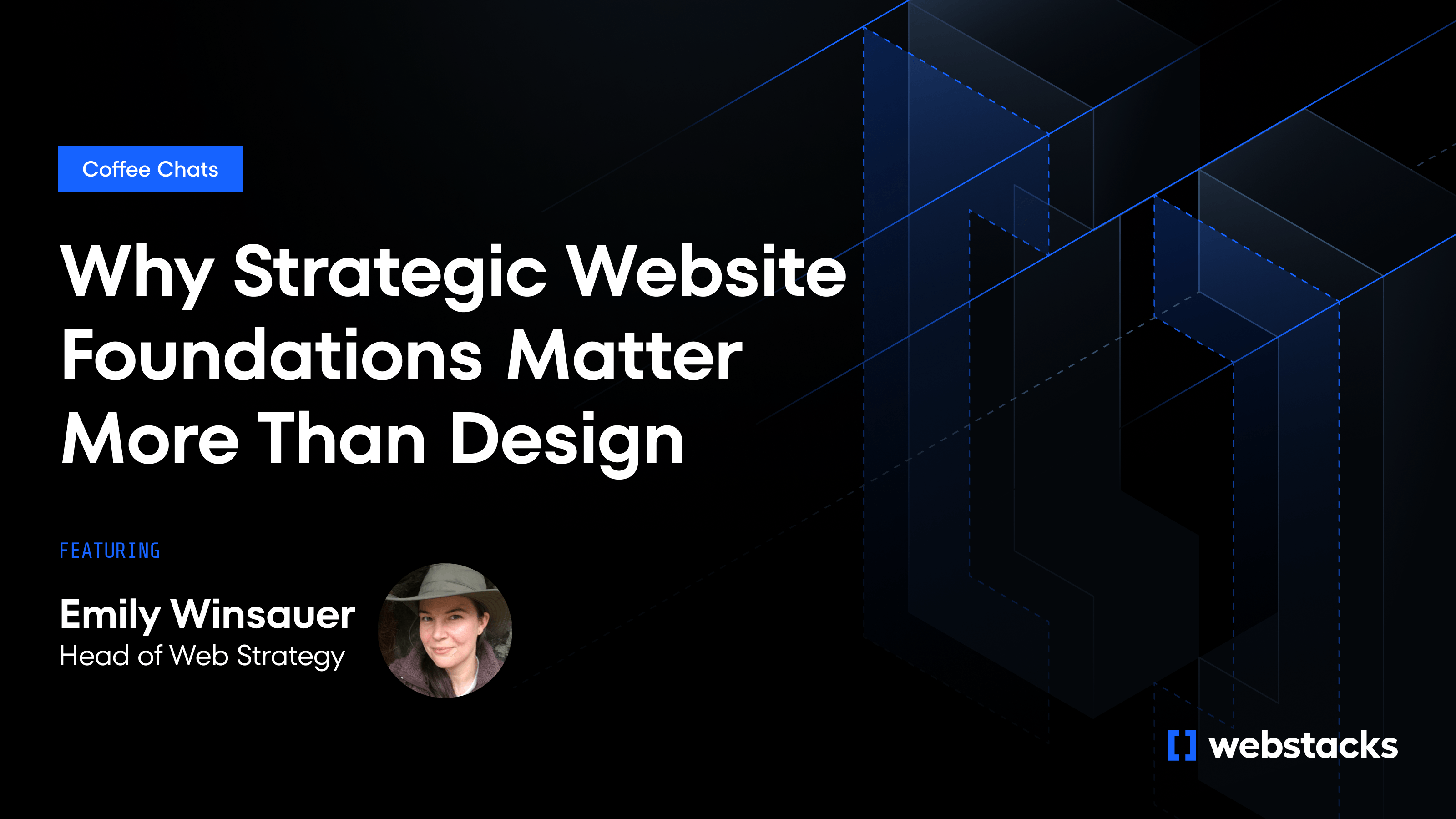In the SaaS market, Content Management Systems (CMS) play an important role in driving growth, enhancing user experiences, and ensuring scalability. But deciding what is the best CMS for your company can still be a challenge.
A CMS is an application that lets users create and maintain a website without requiring them to start from scratch or know how to code. It has a user-friendly interface that lets you customize the functionality and design of the website.
Let's explore the top 10 CMS options that can help your business succeed.
Key Takeaways
- Choosing the right CMS for your SaaS company is crucial for driving growth, enhancing user experiences, and ensuring scalability.
- Content management systems can help you establish a strong online presence, create and manage content efficiently, and integrate with your existing tech stack.
- Factors like customization, content editing, and performance are key considerations when selecting the ideal CMS.
Importance of Choosing the Right CMS for SaaS Companies
Over 76 million websites use a content management system.
The CMS you select will not only impact your website's functionality and user experience but also play a vital role in shaping your overall digital presence.
Key Features to Look For
As a SaaS, you should prioritize a CMS that offers the following features:
- Composability: A composable CMS allows you to be flexible enough to accommodate specific business needs and easily make changes to your website.
- Intuitive UI: The CMS should be user-friendly for your non-technical marketing team, allowing them to manage and update your website's content without relying heavily on development resources.
- Speed and Performance: A fast and responsive CMS delivers a smooth user experience and optimizes your website's conversion rates. Look for a CMS that prioritizes speed and performance, especially as your SaaS business grows.
SaaS companies should also evaluate factors like implementation and maintenance costs, integration with existing tech stack, and scalability to support their business growth.

What Really Matters to SaaS Marketing Teams
When choosing the best SaaS CMS for your SaaS website, the needs of your marketing team should be a top priority.
SaaS marketing professionals require a content management system that offers intuitive content editing capabilities, allowing non-technical users to easily manage and update your website without relying on development resources.
1. Intuitive Content Editing for Non-Technical Users 🧑💻️
Your SaaS CMS platform should provide a user-friendly content editing interface that allows your marketing team to create, publish, and update content with ease.
This level of independence from IT support is crucial for businesses, where speed to market and a responsive online presence are keys to maintaining a competitive edge.
2. Independence from Development Resources 🚫
SaaS marketing teams need the ability to make updates and changes to your website without constantly relying on your development team.
A headless CMS that offers a high degree of autonomy for non-technical users can significantly improve your team's efficiency and responsiveness. This approach allows you to adapt your SaaS applications and online presence to changing market conditions and customer needs swiftly and effectively.
3. Scalability for Business Growth 📈
As your SaaS business grows, your content management platform needs to be able to scale accordingly. Look for a SaaS CMS that can accommodate increasing content, traffic, and functionality requirements without compromising performance or user experience.
If you are a large-scale organization or in a high-growth stage, we recommend checking out enterprise-grade CMS platforms.
4. Support and Training 💬
Choosing a SaaS CMS provider that offers comprehensive support and training resources is an integral selling point for SaaS marketing teams.
This allows your team to quickly become proficient in using the platform, ensuring a seamless content creation and management process that supports your overall SaaS business objectives.
5. Omnichannel Content Delivery 🌎
Your SaaS marketing team needs a CMS platform that facilitates omnichannel content delivery.
This means the ability to publish and manage content across multiple channels, including your website, mobile apps, social media, and other digital touchpoints.
A SaaS CMS with strong omnichannel capabilities will ensure a consistent and engaging user experience for your customers, regardless of how they access your SaaS products.
6. SEO, A/B Testing, and Personalization Capabilities 🔎
To effectively reach and convert your target audience, your SaaS CMS should provide advanced features like SEO optimization tools, A/B testing capabilities, and personalization options.
These capabilities empower your marketing team to create, measure, and continuously improve the performance of your online content, ultimately driving better results for your SaaS service and overall business growth.
Additional Business Considerations for SaaS Companies
When selecting a SaaS CMS for your business, it’s important to consider more than just the marketing features. Here are key factors to keep in mind:
- Implementation and Maintenance Costs: Ensure the CMS platform fits within your budget and resource constraints. Consider both the initial implementation costs and the ongoing maintenance and support fees to ensure a sustainable long-term investment.
- Integration with Existing Tech Stack: Seamless integration with your current tech stack enables you to maintain a streamlined workflow. Evaluate the CMS vendor’s ability to connect with your other third-party tools and services, allowing for efficient content creation and management.
- Performance: As your SaaS business grows, your CMS solution must be capable of handling increased traffic, content demands, and digital experience requirements without compromising speed or reliability. Look for a flexible CMS that can scale with your business and adapt to evolving needs.
Remember, you don’t need to rely on just one CMS if multiple platforms better suit your needs—59% of companies use several CMSs to minimize delivery risks.
Top 10 Content Management Systems for SaaS Companies
When it comes to choosing the right CMS for your business, the market offers a diverse array of platforms, each with unique features and capabilities.
Some CMS platforms are more robust and offer additional features that enterprises and high-growth companies need to stay at the forefront. Other CMSs are best suited for startups and SMBs with more simple web operations.
Now, let's share some of the top CMS platforms for SaaS companies:
Contentful
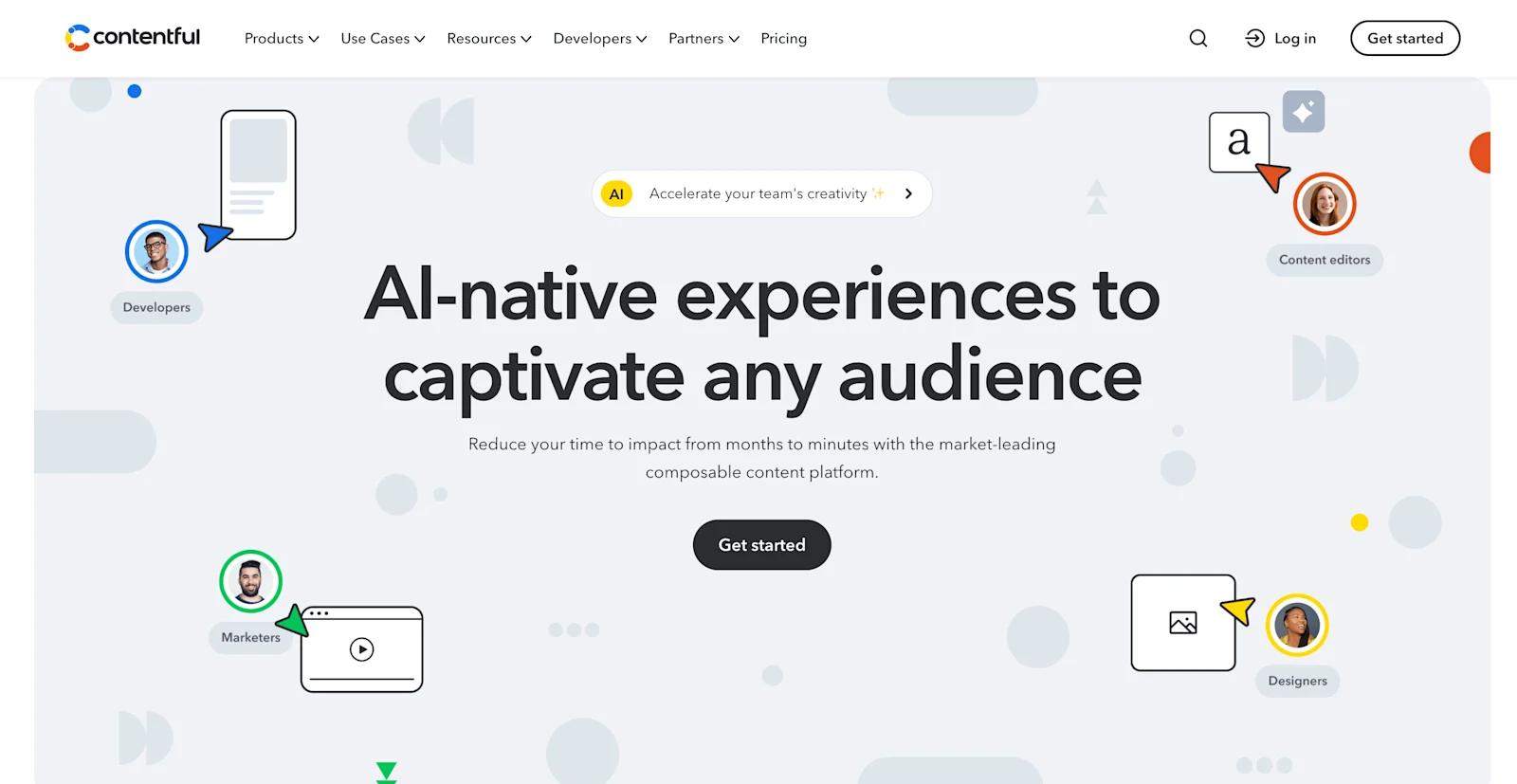
contentful website
Used by over 94,000 websites, Contentful is a popular headless CMS that provides a flexible and scalable solution for creating and managing content across multiple channels. It allows developers to build custom content models and integrate seamlessly with various front-end frameworks.

Storyblok
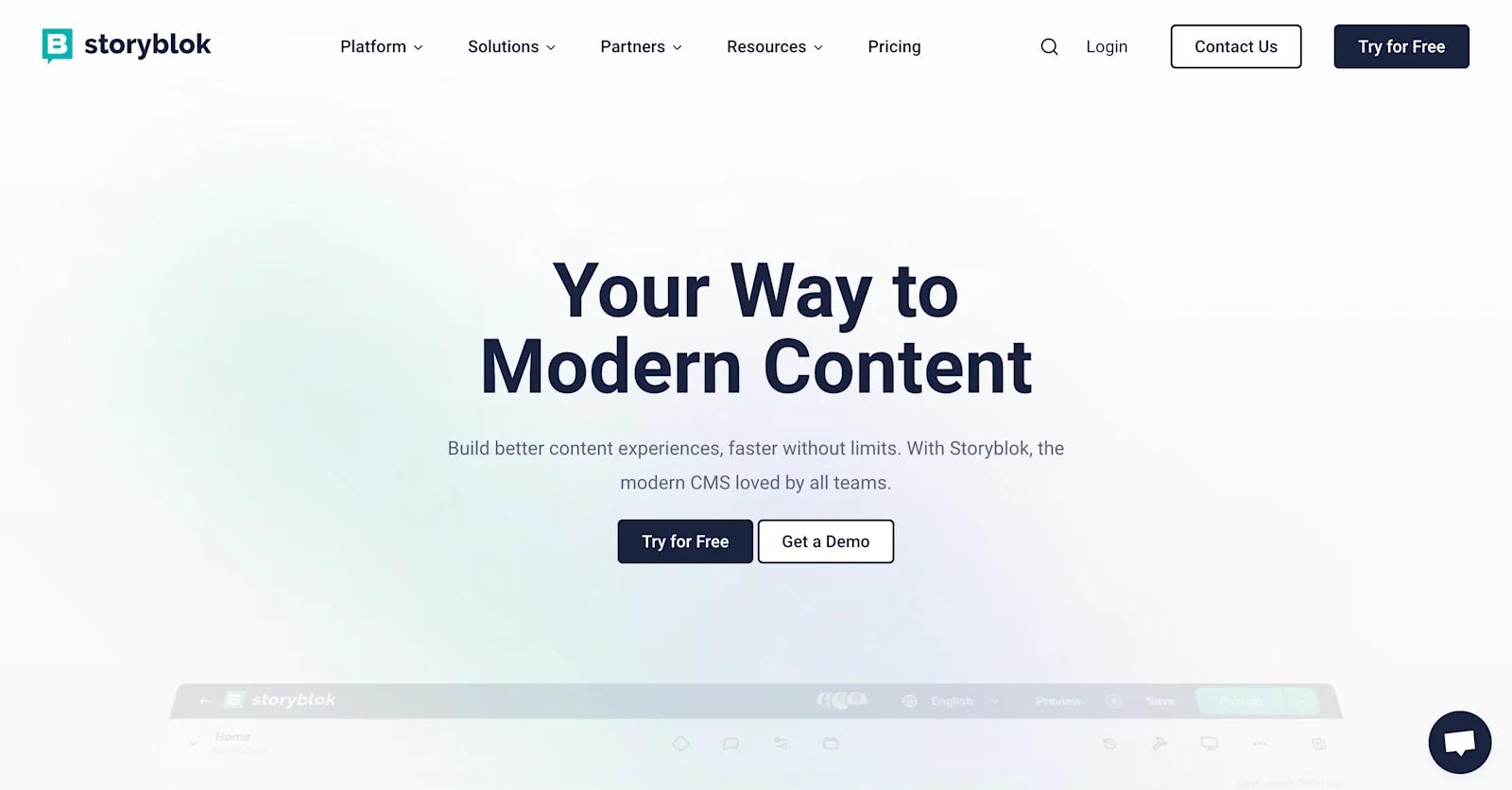
storyblok website
Storyblok is a user-friendly SaaS CMS that empowers non-technical users to easily create and manage content. Its visual editor and collaboration tools make it easy for teams to work together, while its headless architecture ensures flexibility and performance.

Builder
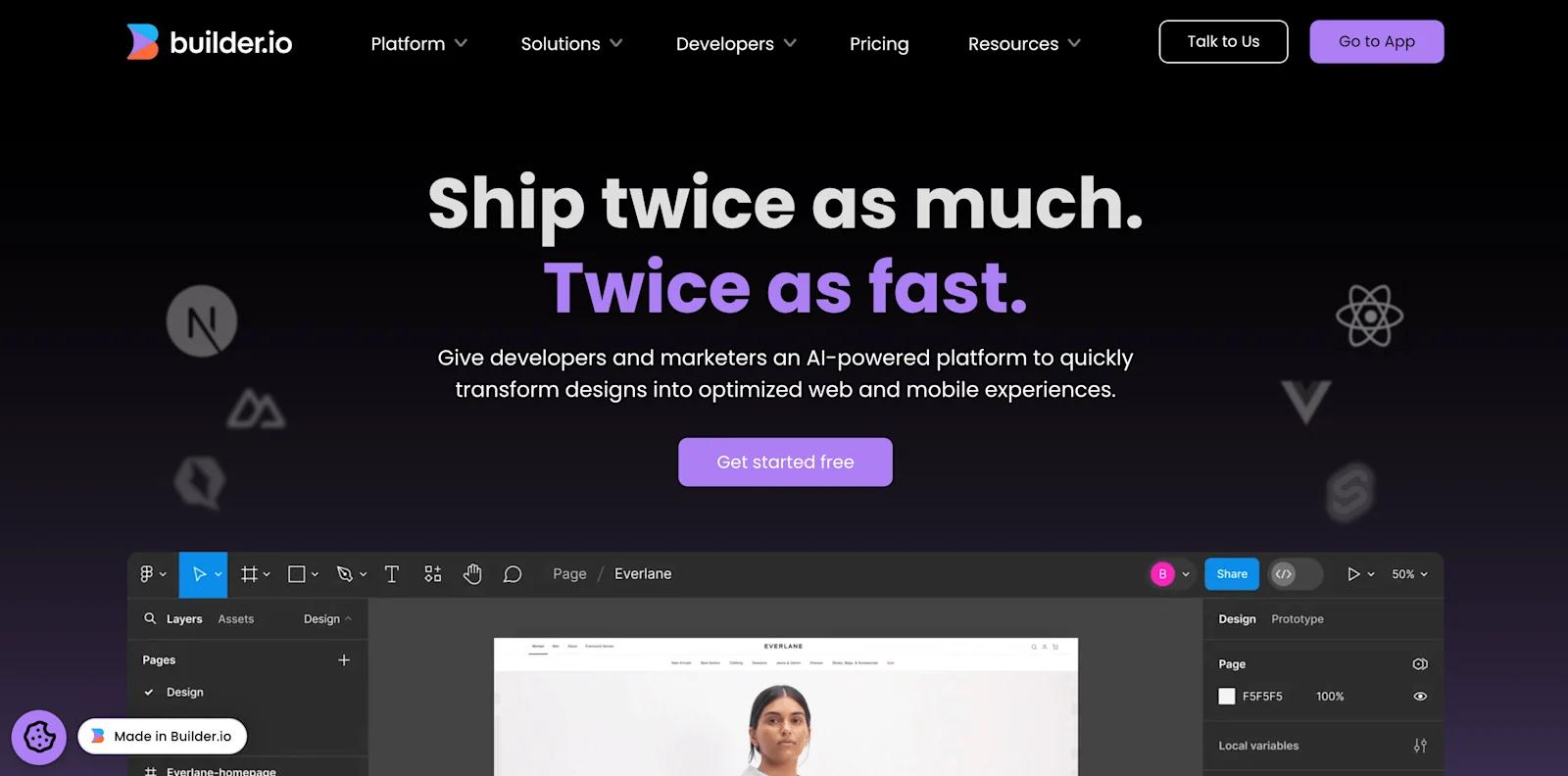
builder website
Builder is a no-code CMS platform that allows SaaS businesses to quickly build and launch websites and web applications. Its drag-and-drop interface and pre-built templates make it accessible to users of all skill levels, while its integration capabilities ensure a smooth workflow.
DatoCMS
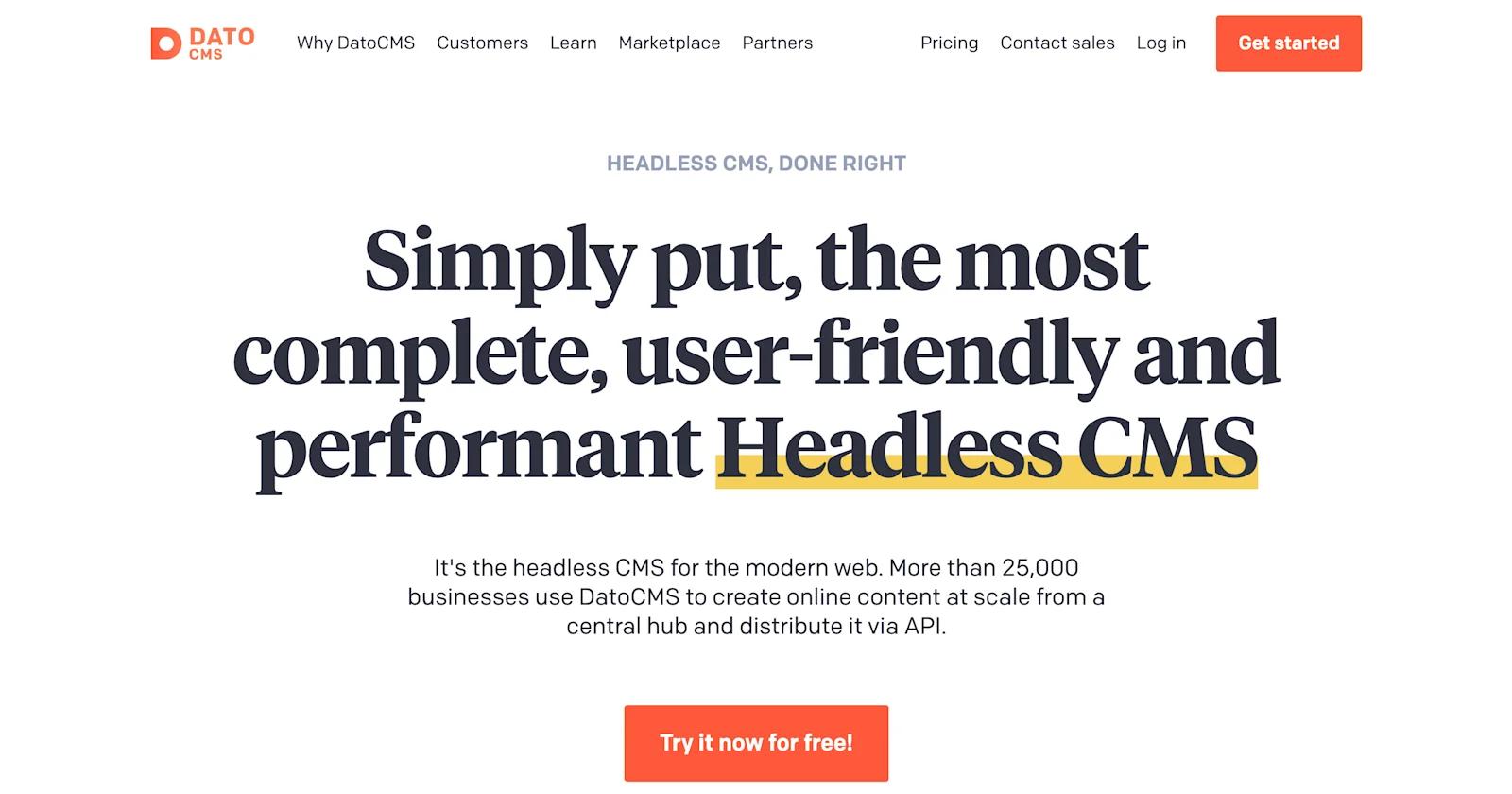
datocms website
DatoCMS is a headless CMS that offers a flexible and customizable solution for managing content. It focuses on developer-friendly features and seamless integration with SaaS applications, making it a powerful tool for creating dynamic and scalable websites.

Sanity
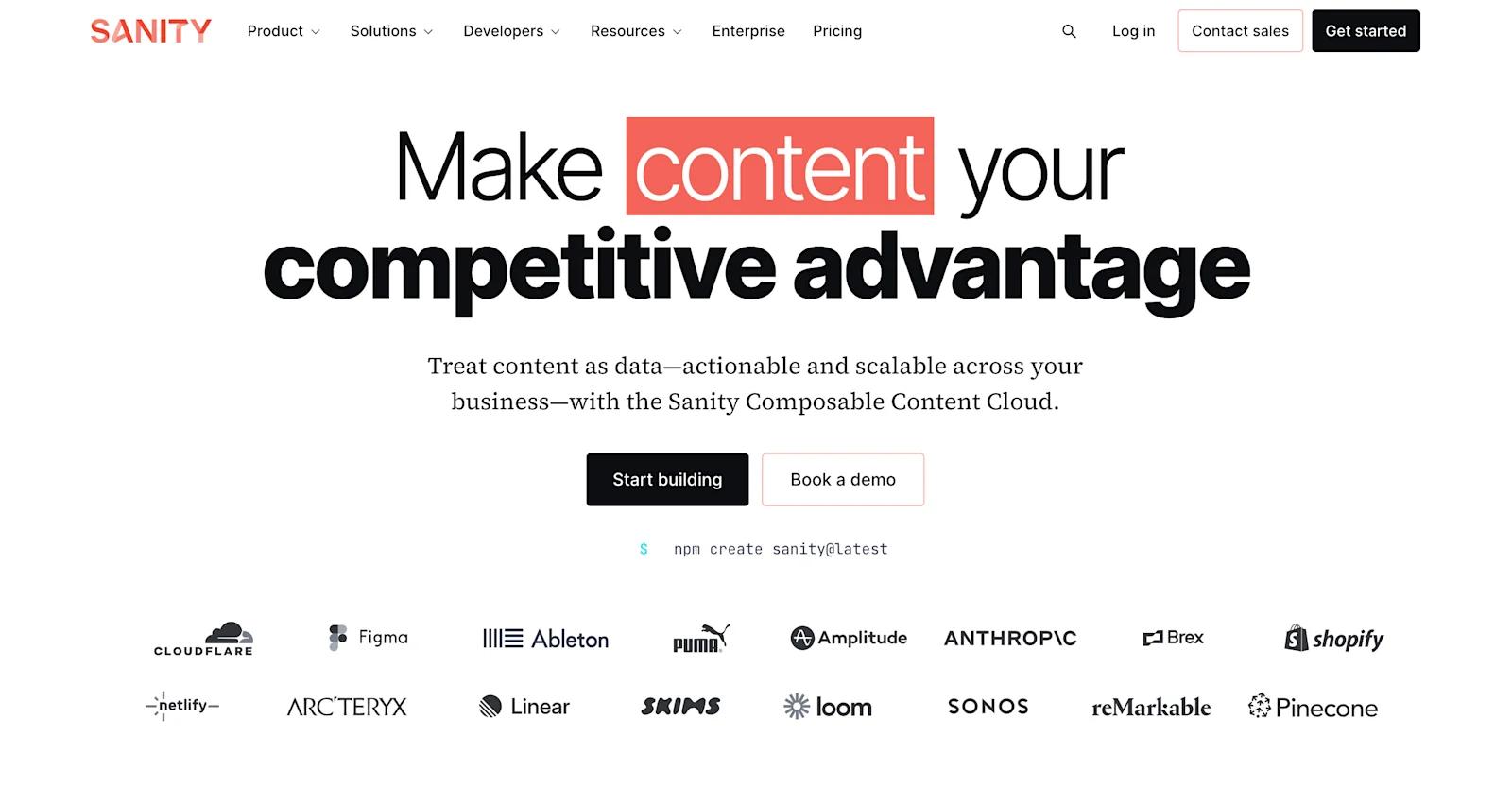
sanity website
Sanity is a content-first CMS platform that provides robust tools for creating, managing, and delivering content across multiple channels. It includes support for digital asset management and real-time collaboration, making it ideal for teams working on complex projects.

HubSpot CMS
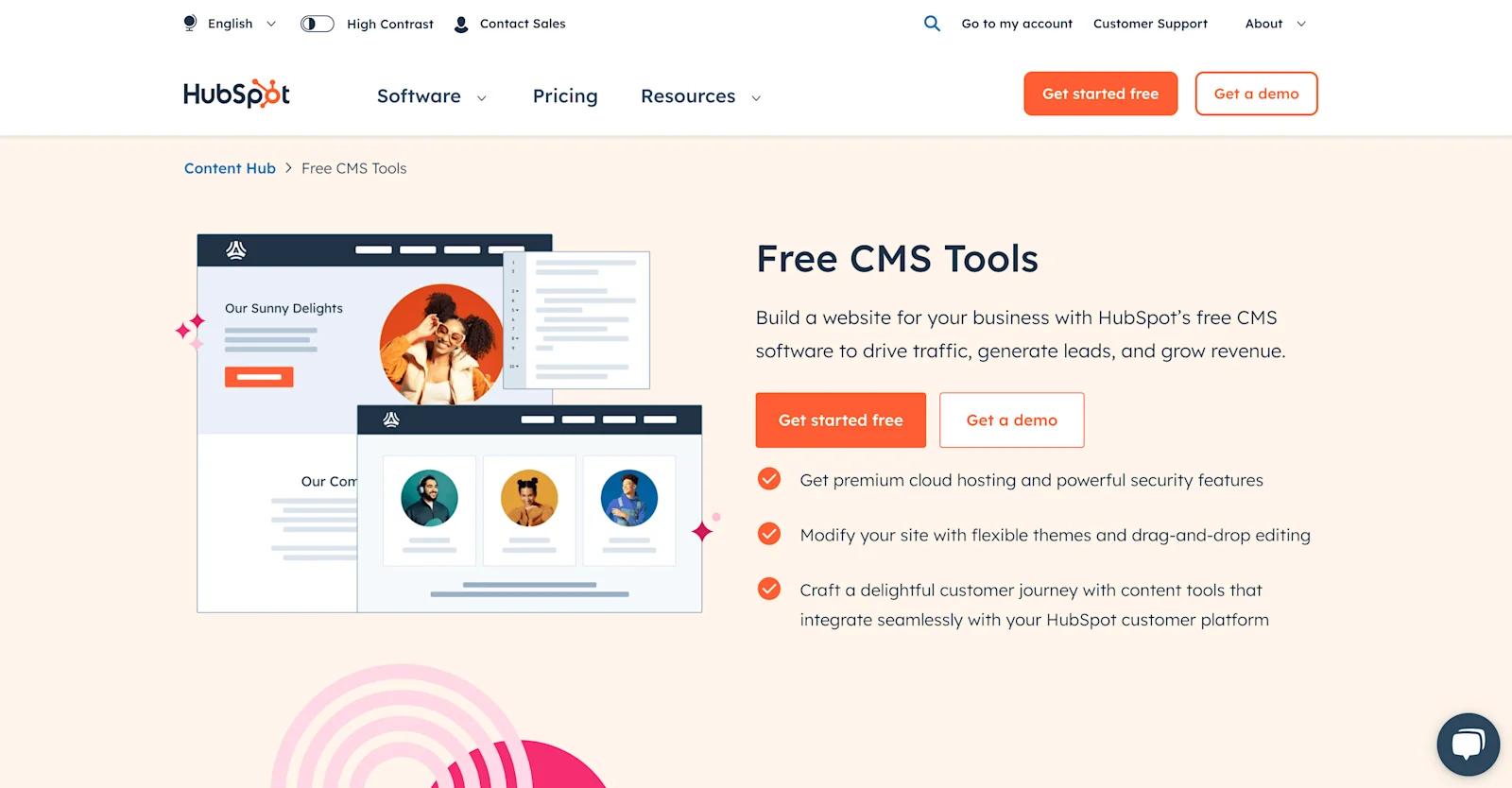
hubspot cms
HubSpot CMS is an all-in-one content management system designed to help businesses create and optimize their websites with ease. It offers powerful tools for content creation, personalization, and performance tracking, along with built-in SEO and lead generation features.

Webflow
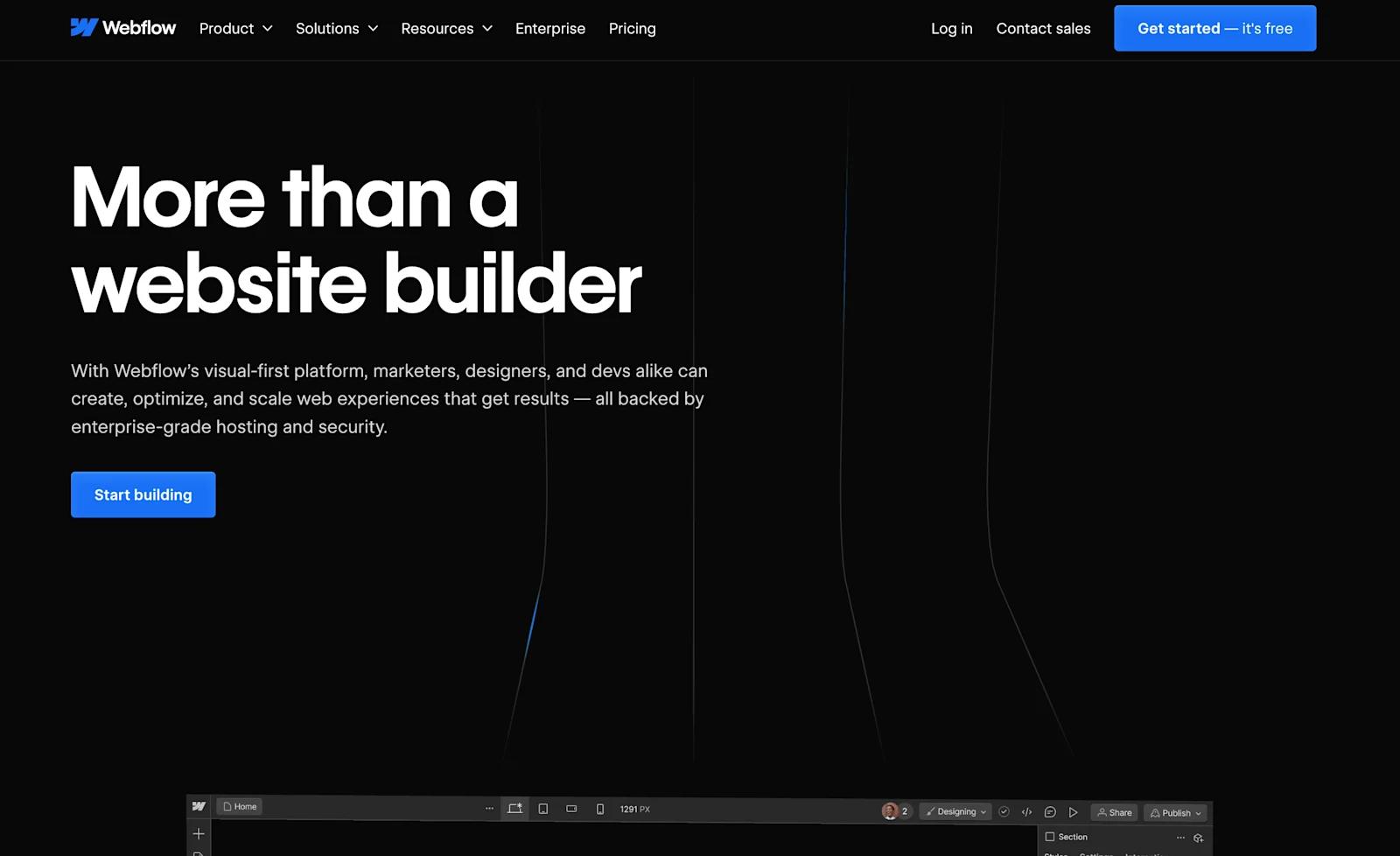
webflow website
Webflow is a visual web development platform that empowers designers to create, manage, and publish fully responsive websites without writing code. It combines the flexibility of a CMS with the power of HTML, CSS, and JavaScript, supporting dynamic content and integration with third-party services.

Prismic
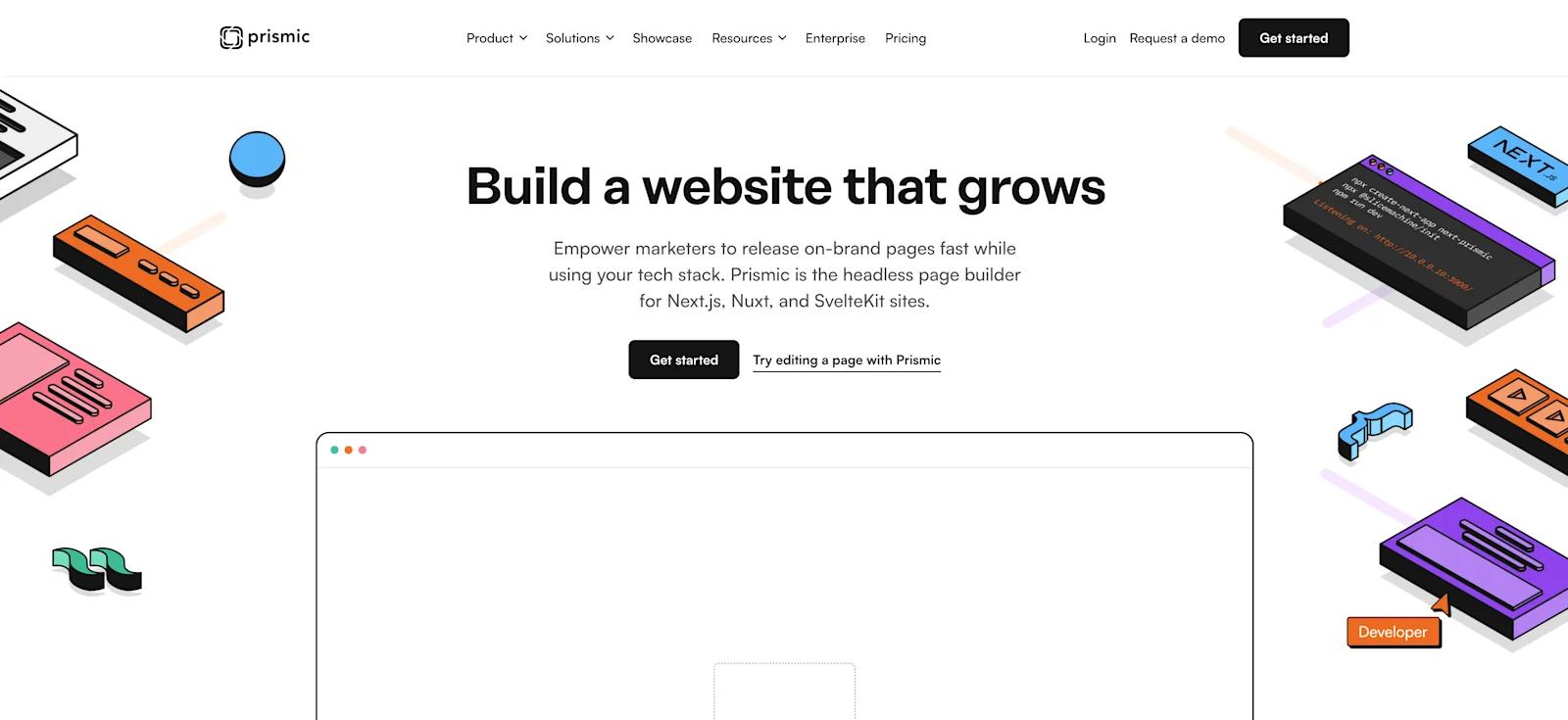
prismic-website
Prismic is a headless CMS that allows developers and marketers to create, manage, and distribute content seamlessly across different channels. Its API-driven approach and content modeling features make it easy to integrate content into any website or application.
Contentstack
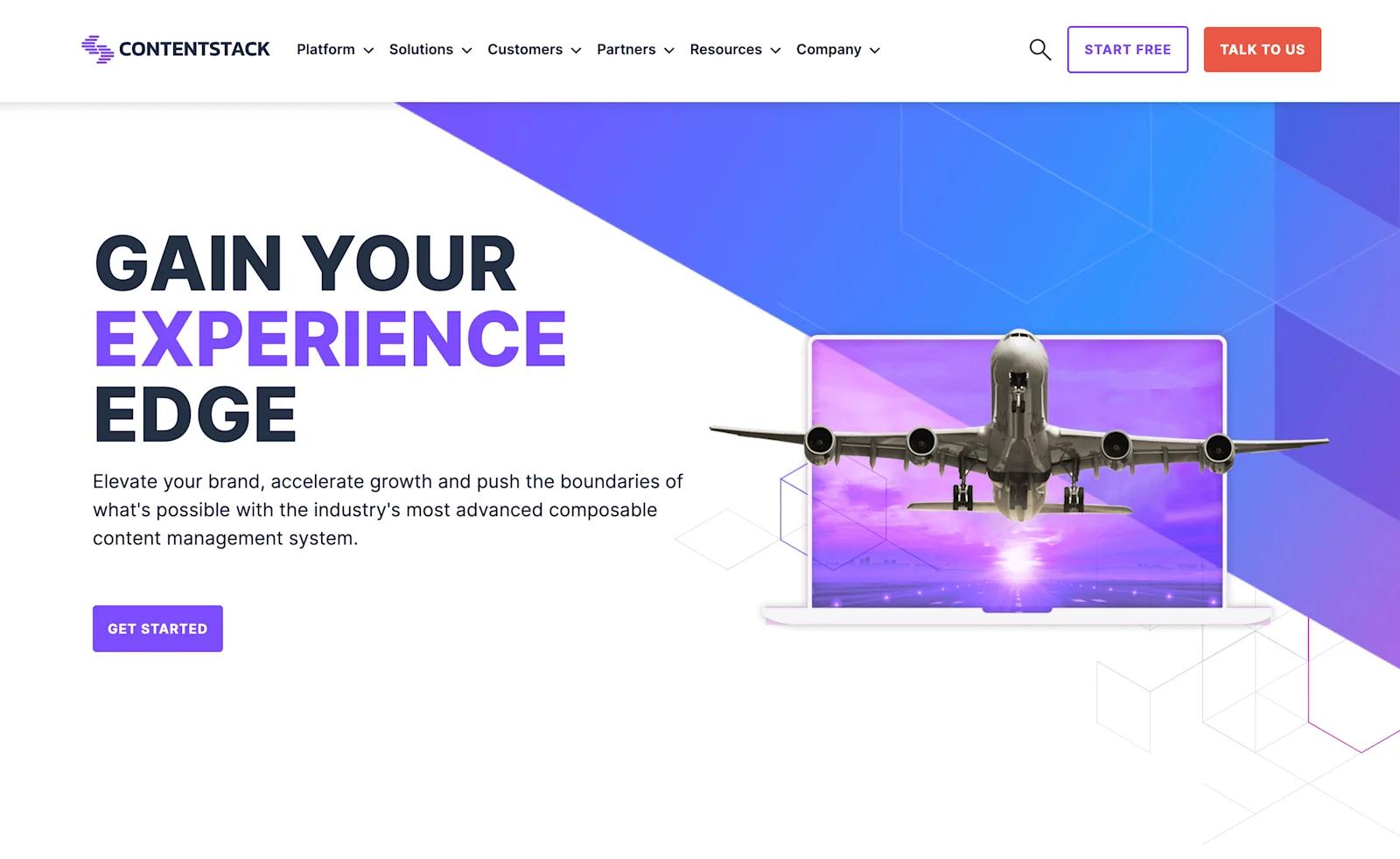
contentstack-website
Contentstack is a headless CMS designed for creating and managing content experiences across multiple platforms and devices. Its scalable API-first architecture allows for easy integration with various technologies, supporting agile workflows and collaboration.
WordPress VIP
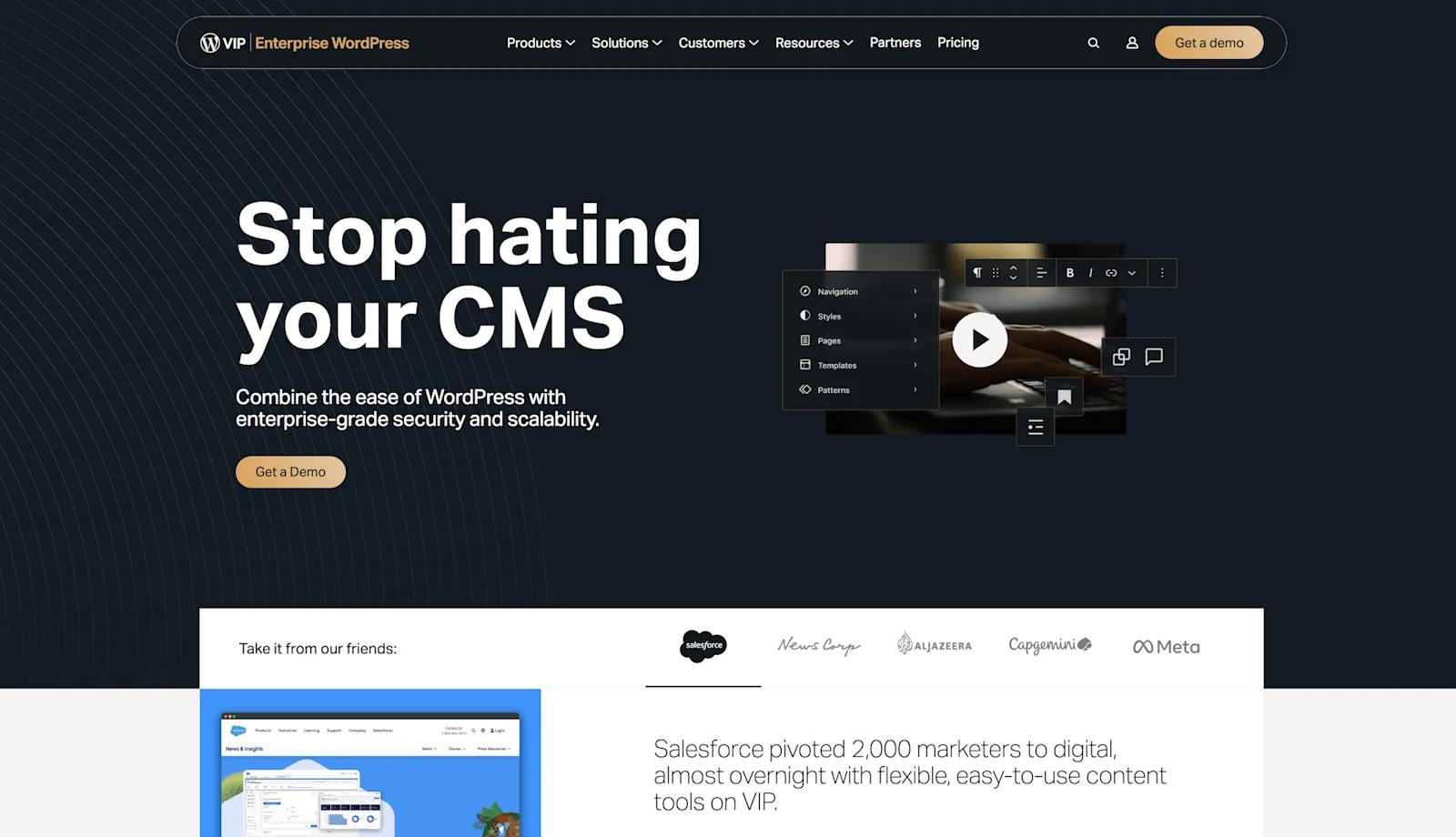
wordpress vip website
WordPress VIP is a high-performance content management platform tailored for enterprise-level websites and applications. It leverages the flexibility and familiarity of WordPress while offering enhanced security, scalability, and support for large-scale content operations.
These are just a few examples of the many CMS options available for SaaS companies. When choosing a CMS for your business, it's important to carefully evaluate your specific needs, consider factors such as customization, user-friendliness, performance, and scalability, and select the platform that best fits your business requirements and growth trajectory.

Choosing the Right CMS for Your SaaS Company
When it comes to selecting the ideal SaaS CMS for your SaaS business, thorough assessment of your specific needs is crucial. This includes evaluating factors like implementation and maintenance costs, seamless integration with your existing tech stack, and the SaaS CMS platform's ability to scale as your company grows.
Assessing Specific Needs
Start by identifying your company's unique business needs and how a SaaS content management system can address them. Consider factors such as:
- What does your team value in a CMS?
- Who will be using it?
- The level of customization required?
- The need for third-party integrations?
- The importance of uptime and user-friendly features?
- What special features and functionality do you need to ensure your chosen CMS will be sufficient?
Evaluating Long-Term Costs and ROI
Understanding the long-term costs and potential return on investment (ROI) is essential. Key points to evaluate include:
- Pricing Structure: Examine the CMS provider's pricing model and any additional fees for customization or integrations.
- Budget Impact: Consider how the CMS will fit into your overall SaaS budget. Ensure that ongoing costs align with your financial projections.
- ROI Potential: Assess how the CMS can enhance efficiency, reduce manual work, and support revenue growth. Calculate potential savings and productivity gains.
Planning for Future Growth
Your CMS must scale with your business. Evaluate the platform's scalability by considering:
- Content and Traffic Management: Ensure the CMS can handle increasing volumes of content and traffic without compromising performance.
- User Capacity: Verify that the platform can support a growing number of users and contributors.
- Feature Expansion: Choose a CMS that can adapt to future needs, including new features and functionalities as your business evolves.
Involving Key Stakeholders in Decision-Making
Collaborating with key stakeholders ensures the CMS aligns with your overall business strategy. Include:
- Marketing Team: Ensure the CMS supports your marketing goals, such as SEO capabilities, content personalization, and campaign management.
- IT Team: Verify the platform meets technical requirements, including security, compliance, and integration capabilities.
- Executive Team: Align the CMS choice with the company's strategic objectives and long-term vision.
By carefully assessing your specific needs, evaluating long-term costs, planning for growth, and involving key stakeholders, you can choose the right CMS that will support and enhance your SaaS business.
Conclusion
As you've explored the 10 best CMS platforms for your SaaS business, it's clear that the right SaaS CMS can significantly elevate your online presence and drive business growth.
When evaluating SaaS CMS platforms, consider your specific needs, long-term costs, and plans for future expansion. Engaging key stakeholders in the decision-making process can also help ensure you select the best SaaS CMS for your organization.
Remember, the right SaaS CMS should not only meet your current requirements but also seamlessly scale with your SaaS business as it evolves.





